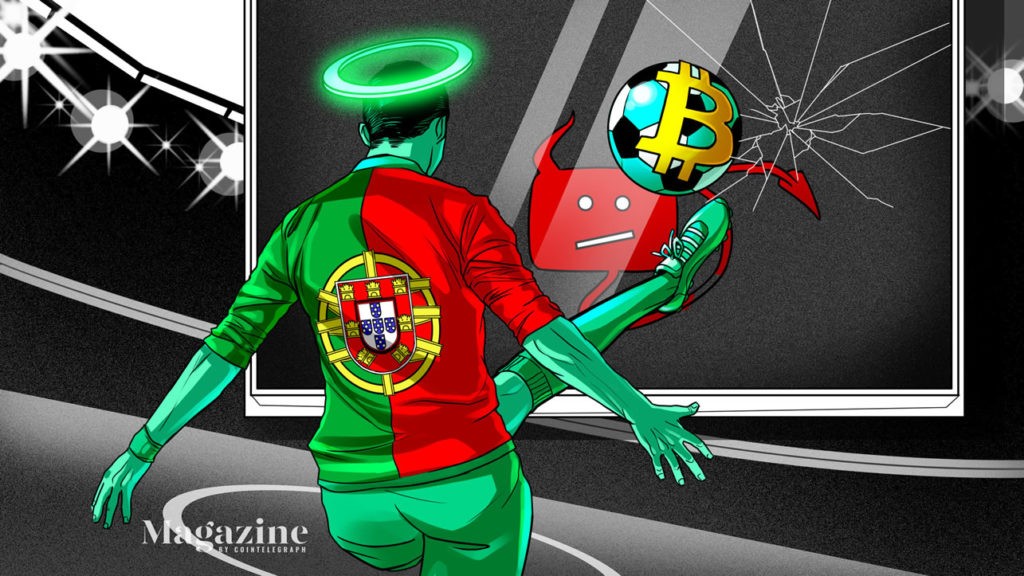When the Tube’s Away, The Algorithm Will Play
In March, YouTube warned that its algorithm might go haywire during the COVID-19 shutdown with fewer human eyes on the wayward beast. It’s hard to miss the message that screams “during the lockdown our algorithm might accidentally lock you out”.
It is equally hard to miss the fact that crypto-tubers don’t have a lot of luck when it comes to tripping the video site’s hazard wires. Tone Vays, The Crypto Lark, and Blockchain Education Network have all suffered at the hands of the “harmful content” trigger recently.
None appears to have been offered an explanation why. But there is a plausible explanation for last week’s shenanigans. One that promises to send ripples of fear through the entire crypto content industry.
Ripple Sues YouTube, YouTube Boots Ripple CTO
Ripple Labs has filed a lawsuit against the platform for failing to do enough to stop scammers and impersonators promoting fake XRP giveaways.
The last thing they want is for XRP tokens flooding into the wallets of scam artists.
Of course, a few thousand XRP tokens here and there probably don’t have that much impact on the price of XRP… especially since Ripple co-founder Jed McCaleb continues to dump around 1.8 million XRP every single day on the sad, powerless retail market. And oh! Look! Ripple sent him another 55 million XRP just yesterday.
Ahem… back to the point.
About a week after the lawsuit was announced, Ripple CTO David Schwartz’s YouTube channel was suspended, after he was apparently flagged for impersonating himself.
Let’s unpack this:
- YouTube’s antipathy towards crypto channels pre-dates the coronavirus pandemic
- The unchecked and ill-tempered algorithm has exacerbated the situation, yet scammers continue to occupy the video hosting behemoth unscathed
- Ripple Labs sues the platform for allowing those scammers to continue
- YouTube bans an actual Ripple executive
So either…
- The algorithm doesn’t work, or…
- The algorithm is programmed to flag crypto content, whether harmful or educational, or…
- YouTube thinks Ripple itself is a scam (And who could… ah, that’s another story.)
An algorithm driven by machine learning shouldn’t really need supervision anyway.
And last week’s David Schwartz ban could indicate that the algorithm isn’t the only culprit here.
It seems the time has come for a decentralized alternative. Fortunately, there are quite a few of them around.
The crypto community created the #ForkGoogle memorandum accusing YouTube of waging “campaigns of suppression against Bitcoin and blockchain industry for years” by censoring content.
And while free speech is not protected on a platform owned by a private company, YouTube is hereby declared the Epic Fail of the week, for allowing its renegade crypto-loathing algorithm to continue a war of attrition against the blockchain industry.
For shame!
DTAP Creates ZLT… What?
It may be slower out of the blocks than Malta and France, but Portugal’s government is marching full steam ahead toward crypto-friendly status. The Digital Transitional Action Plan (DTAP) published on April 21 lays out a roadmap for the country to open its doors to companies working in digital innovation.
Of significant interest to a crypto community largely bereft of a place to call home is the plan to establish “Technology Free Zones” (Zonas Livres Tecnológicas) or ZLTs, intended to reduce regulatory burdens on companies working on new or experimental technologies.
And regulatory-burden-lifting is a big thing in crypto, a sector frequently sidelined and frustrated by incumbent players and fearful governments.
But Portugal wants in,and instead of just creating sandbox-style exemptions and trial periods, it seems the European nation’s government wants to kick the saloon doors wide open. Portugal has always been tax-friendly toward cryptocurrencies, but lacked a bespoke regulatory framework.
Enter The Zonas
The plan is broadly welcoming of digital technologies, and is intended to give the country an edge in sectors like digital privacy, blockchain, cyber-security and defense, the data economy, communications, and infrastructure.
The move seems certain to attract blockchain and crypto companies and will look particularly attractive to fintech startups, which typically face regulatory moats that legacy financial systems have spent centuries digging.
The increasingly-hospitable beaches of the European side of the Atlantic could hardly present a stronger contrast to the choppy regulatory waters flowing beneath the Golden Gate bridge.
Land of Cristiano Ronaldo and… ummm… half of Nelly Furtado… this week you Nailed It.
Opinions expressed in this column are those of the author.

Paul de Havilland
China’s 100K TPS blockchain, Japan’s Minna Bank eyes Solana: Asia Express


